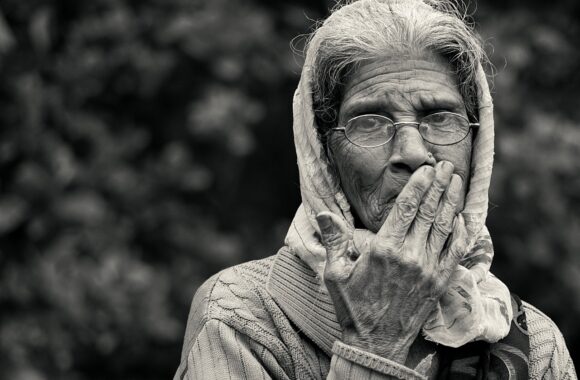Poor Mental Health Considered ‘Normal’ for Older People, According to New Report
A new report from charity Independent Age, called Minds that matter: Understanding mental health in later life, has revealed the national picture of mental health in older people.
- 1 in 4 people believe that poor mental health is a normal part of getting older.
- Roughly 1 in 10 people in England aged 56 and over will have moderate to severe anxiety or depression. This translates to 1.2 million people.
- Only 13% of those aged 65 and over believe that older people are represented in mental health-related marketing campaigns.
- Nearly 1 in 10 older people will develop complicated grief after the death of a loved one. Those who have suffered a bereavement are up to four times more likely to experience depression than older people who haven’t been bereaved.
However, the report did highlight the positive experiences of many older people who had talking therapy, such as CBT or counselling, for mental health issues. It found that 54% of older people were aware of talking therapy.
The report drew attention to the range of barriers that prevent those aged 65 and over from being part of the NHS’ Improving Access to Psychological Therapies (IAPT) programme, such as long waiting times and a lack of choice in the type of therapy offered.
At Christine Tizzard Psychology, we know that each person has their own treatment needs, and talking therapy must be tailored to fit them. Giving a client a one-size-fits-all solution isn’t the way forward, nor is a long wait for treatment. If the gap between treatment being needed and actually beginning is too great, the client can deteriorate and they may need a more complex intervention.
Independent Age also drew on earlier research, called In Focus, which explored the difficulties that may add to an older person’s poor mental health. In Focus found that older people with severe depression or anxiety were more likely than their peers to:
- Care for someone for 35 hours a week or more, or be receiving care themselves.
- Live in housing that needs repairs or maintenance work, such as damp-proofing and insulation to keep warm in winter.
- Be in financial difficulties or on low income.
- Face limitations in what they can do, due to physical health problems.
This is understandable; living conditions and healthcare needs (or caring responsibilities) will naturally have an impact on mental wellbeing. In turn, mental health issues can also affect how much you can do around the house, your finances (for example, compulsive spending, difficulty managing money, or struggling to pay bills on time), and your physical health.
Many people have physical symptoms of mental illness, from tension headaches to stomach cramps. Add this to the physical consequences from living in a home that needs major repairs or maintenance – for example, damp problems exacerbating asthma or lung conditions; poor insulation triggering colds – and the physical signs of ageing, and it’s no wonder older people might struggle to manage their moods and wellbeing.
Talking therapy is just one part of the solution, but it’s an important pillar for anyone struggling. Some over-65s may feel it is too late to change their mindset, condition or behaviour, but the right therapy can safely help them address issues, no matter how deep-seated.
Another benefit of private therapy is the lack of limit on appointments, whereas NHS models are tied to a fixed number of sessions for each patient; the Independent Age report mentioned ‘the negative impact of only being offered a small number of sessions’. If something takes longer than expected to unpick, it isn’t a problem in private therapy, as long as the patient is still available and open to treatment. When the number of sessions is low and cannot be changed, it is harder to explore the whole picture.
Managing mental health is an ongoing process, and so is each person’s treatment plan, regardless of age or circumstances. There is always time for older people to seek help, and there are people ready to listen.
Written by guest contributor Polly Allen for Dr Chrissie Tizzard, Chartered Consultant Psychologist, PsychD, BSc, MSc, C.Psychol, C.Sci, AFBPS. Dr Tizzard is the Clinical Director of Christine Tizzard Psychology (ctpsy.co.uk).
